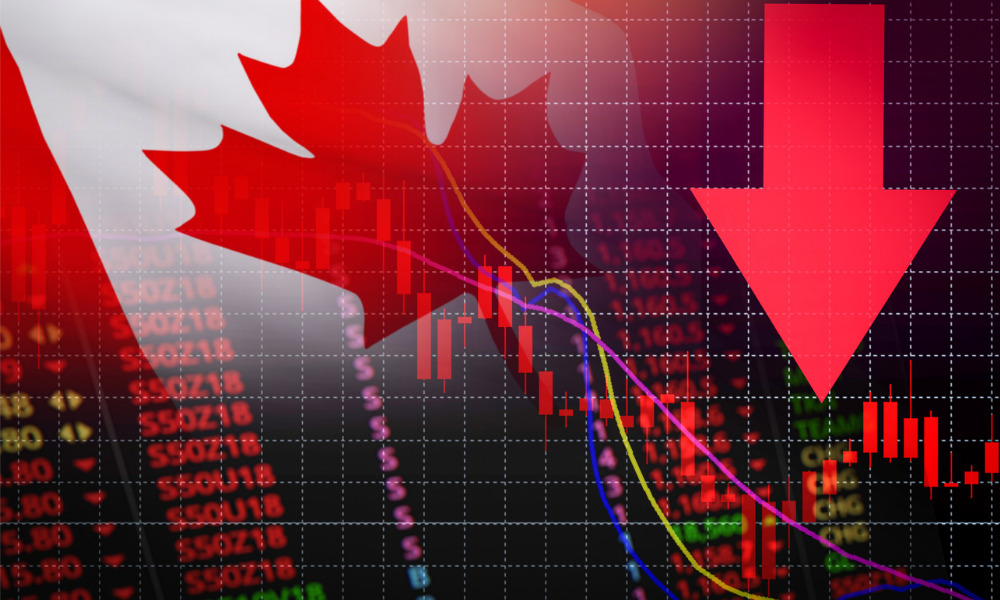Country continues its run of surprising strength as GDP contracts by about 0.3% in both April and May

Canada’s economy shrank less than expected during a spring surge of Covid-19 cases, continuing its run of surprising strength.
Gross domestic product contracted by 0.3% in April and by a similar amount in May, according to estimates from Statistics Canada released Wednesday. Economists had been anticipating a drop of 0.8% in April.
Despite the contraction, the numbers highlight how well the nation’s economy handled successive waves of lockdowns to contain the spread of the virus. That resilience is expected to fuel a strong rebound in the second half of this year. Early evidence points to robust activity in June as restrictions were relaxed and restaurants and other services were allowed to open again.
“June is almost assuredly coming in positive as a result of the reopenings,” Jimmy Jean, chief economist at Desjardins Securities, said by email.
Economists are predicting the country will recover to pre-pandemic levels of output in the third quarter, barring any further setbacks with the virus. The contraction in April and May -- driven in large part due to retail closures -- brought output down to about 98.5% of pre-pandemic levels, according to Bloomberg calculations.
Bounce back
The GDP numbers are probably the last in a series of weak economic data from the third wave of the pandemic. Credit card transactions, job postings and other data show the economy has already sprung back to life.
Royal Bank of Canada’s spending tracker shows consumer activity in early June was well above pre-pandemic levels. Consumer confidence has been hovering at record highs for more than a month. Job posting data from Indeed Canada show restaurants are ramping up hiring. Mobility data from Google shows Canadians are doing more walking, driving and taking public transportation.
“It’s hard to think of a lot of near-term downside risks that could really slow the recovery outside of renewed Covid spread, which looks less and less likely,” Nathan Janzen, an economist at Royal Bank of Canada, said by phone before Wednesday’s data release.
The Canadian dollar was little changed after the report, trading 0.2% higher at C$1.2385 per U.S. dollar at 9:30 a.m. in Toronto.
Stimulus taper
The GDP numbers put the economy on track for growth of at least 2% annualized in the second quarter, down from 5.6% in the first three months of 2021. The expansion is seen accelerating to a pace of 9.1% in the third quarter, with a 6% gain in the final three months of 2021, according to a Bloomberg News survey of economists earlier this month. The Bank of Canada has projected growth of 3.5% in the second quarter.
A massive stock of savings accumulated by households will stoke a lot of that growth, as well as plenty of fiscal spending in the system. Increasing vaccination rates have allowed the country to finally reopen restaurants and bars after months of closures.
That positive outcome is likely to be reflected in a Bank of Canada decision on July 14, when the nation’s central bank is expected to pare back its stimulus efforts again.
“Another taper in July looks quite likely,” Benjamin Reitzes, Canadian rates strategist at BMO Capital Markets in Toronto, said by email.



